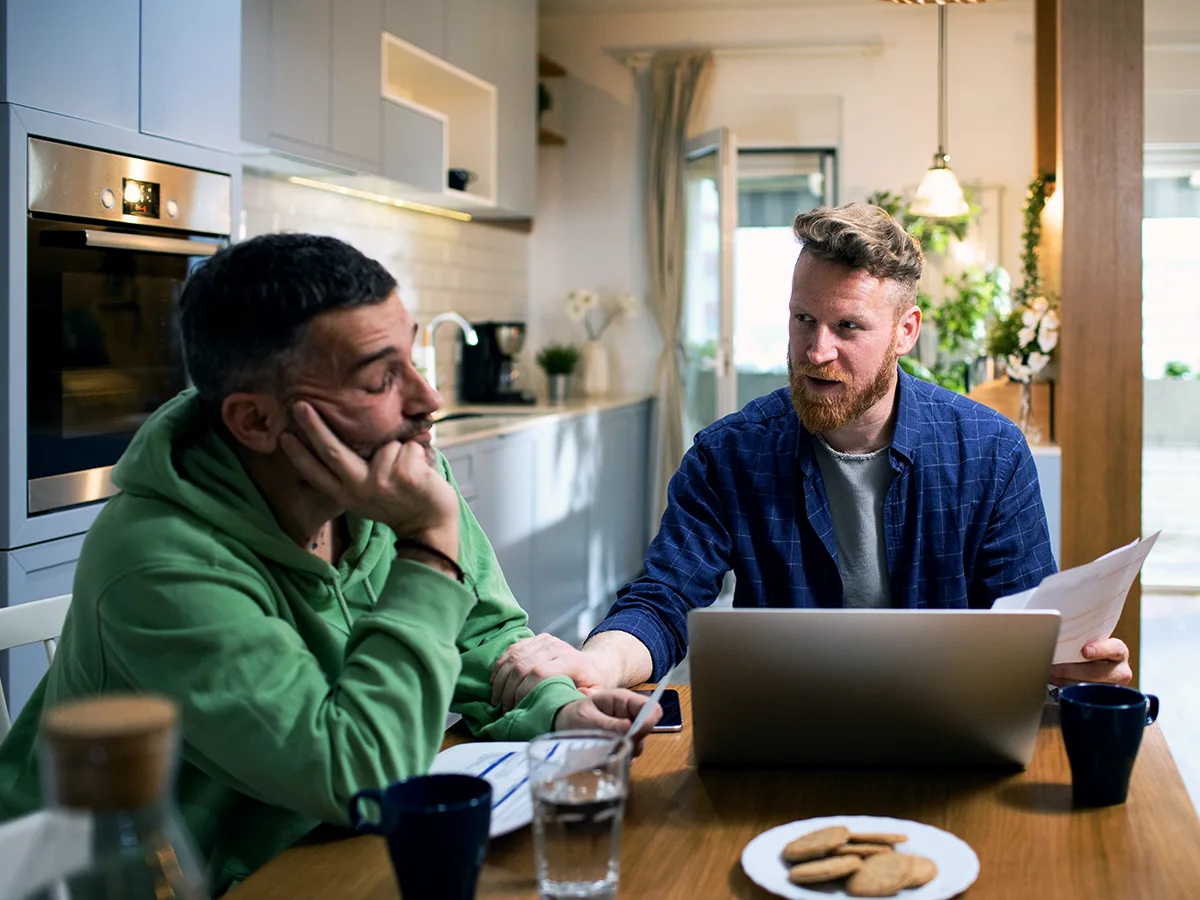Parenting disagreements: How to get on the same page

At a glance
Many parents have disagreements over decisions related to their child with learning and thinking differences.
The conflict may feel uncomfortable, but it can help you two come up with solutions you both like.
Collaborating can make it easier to settle disagreements.
Conflict rarely feels good. That’s especially true when you disagree with your partner about parenting your child with learning and thinking differences. That situation is extremely common. And it can be extremely uncomfortable.
But it doesn’t have to be, says Laura Marshak, PhD, author of Married with Special Needs Children. “It’s natural — and sometimes even good — that you don’t necessarily agree with your spouse on many different things,” she says. Having those difficult conversations can actually help you find creative solutions with your partner.
Common causes of disagreements
According to Marshak, there are four topics that parents of kids with learning and thinking differences are likely to disagree about.
Your child’s abilities. Is your child doing their best? Trying their hardest? Or is your child somehow taking advantage of their issues (or the care they receive for them)? You and your partner may have very different opinions.
The time, energy, and resources you devote to your child’s issues. Perhaps one of you resents that so much of your life revolves around your child’s needs.
Your child’s independence. You probably both want your child to have the freedom to explore on their own. But you may disagree on how much freedom your child can handle.
Future goals. Will your child be able to go to college? Will your child be able to hold a job? These concerns can emerge while your child is still very young.
How to get on the same page
Work together. “Even when you disagree, you and your partner should be on the same team,” Marshak says. “That means that you may respectfully disagree, but you’ll collaborate to resolve your disagreements.”
Be equal — when you average it out. For a partnership to work, both parents have to have an equal say in decisions. “Sometimes you may get your way and sometimes your partner’s point of view may prevail,” says Marshak. “But overall, the balance of power should be 50/50.”
Create new solutions. In many cases, neither you nor your partner will prevail. And that’s good. “Whenever possible, you and your partner should use your differences to help you come up with a new approach based on the best of both of your opinions,” says Marshak. “Both of you have to be open to the other person’s point of view, rather than just focusing on winning the argument.”
How to make it work
Say your child wants to start riding a bike to and from school. Your child has , so their balance and coordination are a little off. But your child has practiced riding for a few weeks. You don’t feel comfortable with the idea, but your partner thinks your child deserves the chance.
“In many cases neither you nor your partner will prevail. And that’s good.”
As you discuss the issue, your partner explains he wants your child to have the opportunity to get to and from school independently. Meanwhile, you explain that you’re concerned about safety.
Together, you come up with a solution your child approves: Your child can walk to and from school for the next month and will practice biking in the evenings. You’ll do some trial bike rides together as a family so your child learns the route.
Then after a month, your child can start biking to and from school, first with another kid from the neighborhood, then solo. This solution incorporates your concerns, your partner’s intentions, and your child’s wishes.
Learning to resolve disagreements together isn’t just helpful for raising your child. It’s important for your relationship. “Without this balance, a couple can’t be a team,” says Marshak. “And that’s when relationship problems are more likely to occur.”
Key takeaways
Many parents of kids with learning and thinking differences disagree about aspects of their children’s abilities, care, and future.
You may not be on the same page as your partner on a particular subject, but it’s important to be on the same team.
For a partnership to work, both parents have to be heard.

